1. “Folsom Prison Blues”
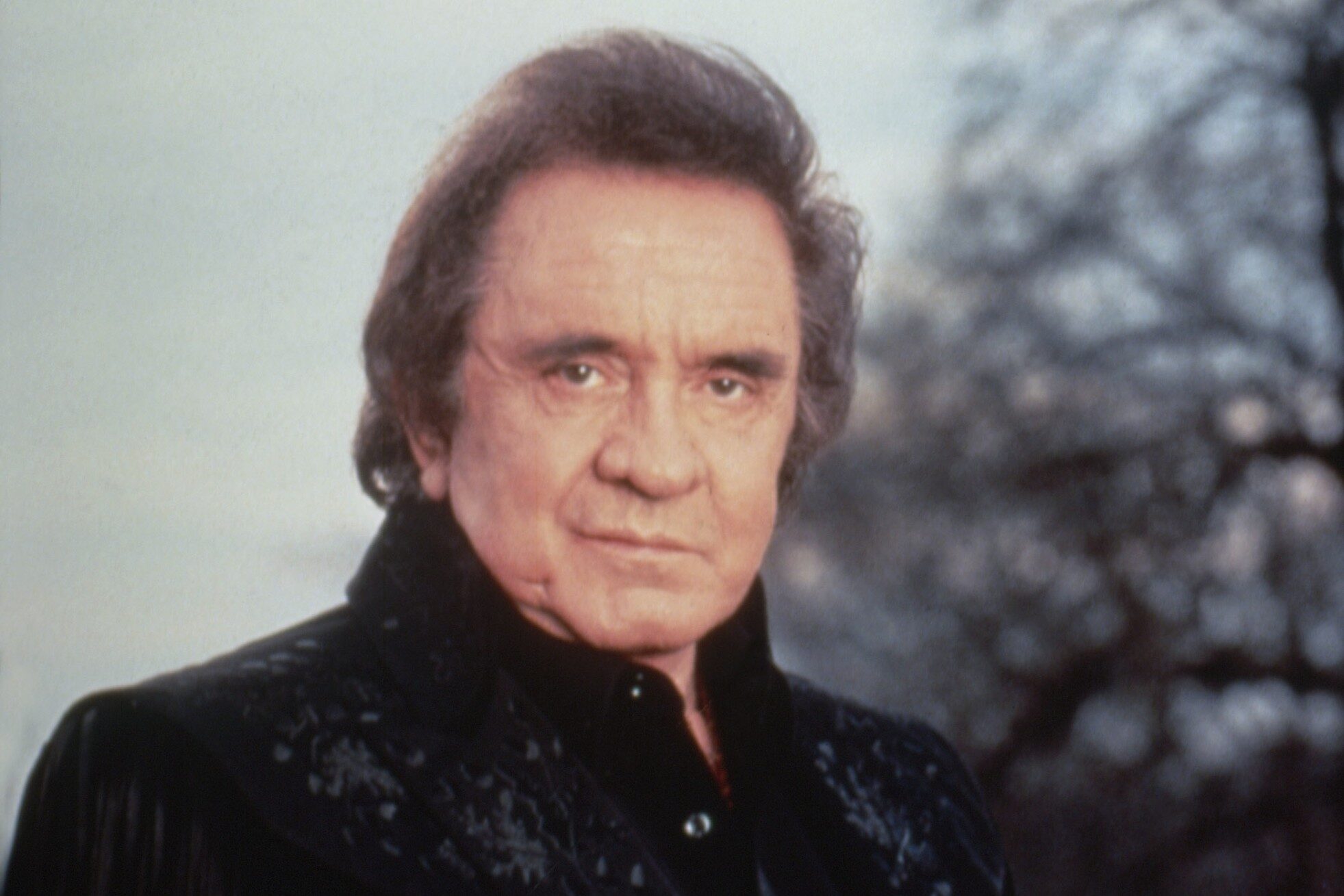
“Folsom Prison Blues” is a perfect example of how Johnny Cash captured the raw emotions of the human experience. Written in 1953, it tells the story of a man who’s serving time in Folsom Prison and is haunted by the memory of a crime he committed. The iconic line “But I shot a man in Reno just to watch him die” became instantly recognizable and cemented Cash’s reputation as the quintessential country outlaw. What makes this track so compelling is the authenticity Cash brought to his performance, especially during his live recording at Folsom Prison in 1968. The energy from the audience, combined with Cash’s passionate delivery, made this a defining moment in his career and one of the best country songs of all time.
2. “Ring of Fire”
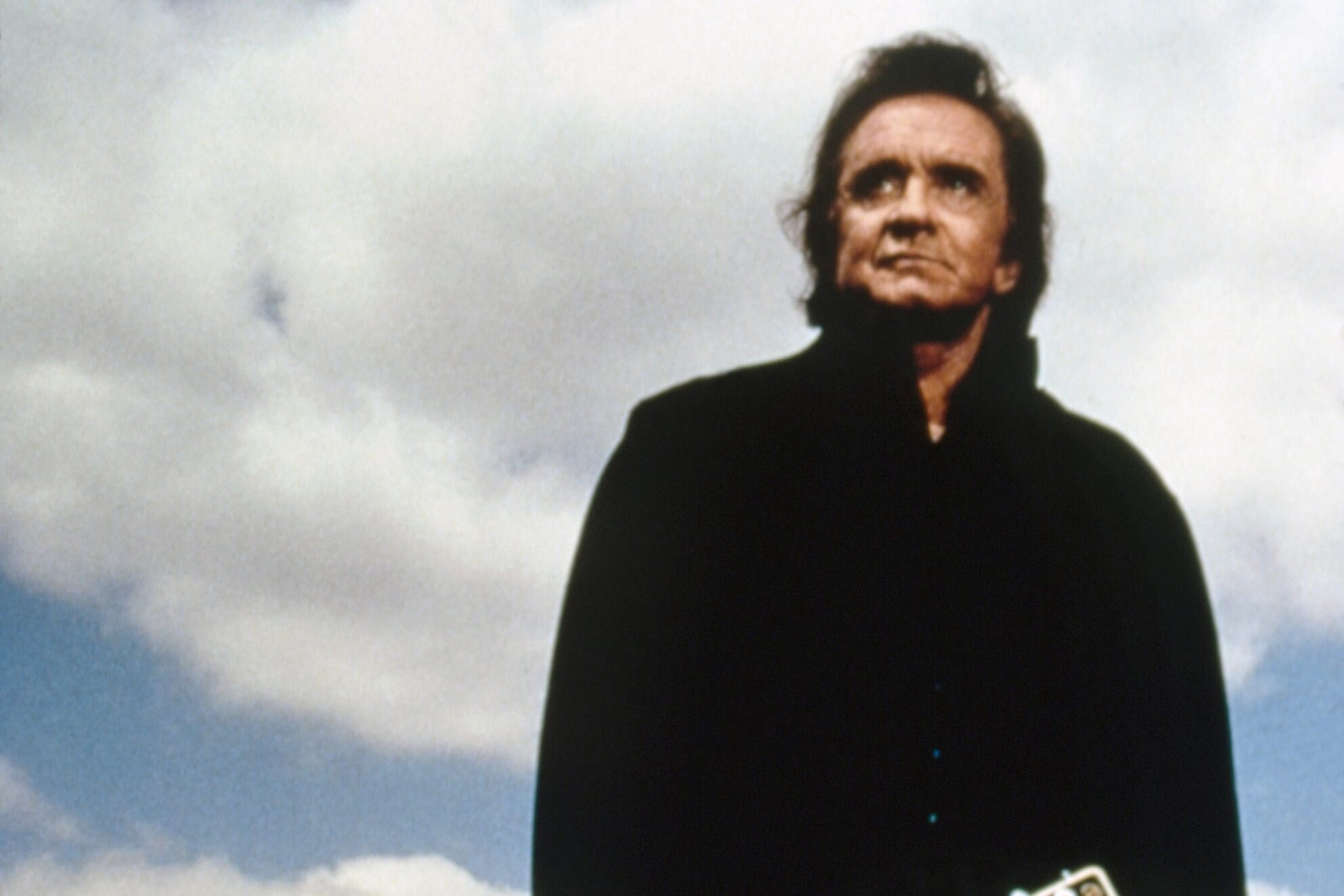
“Ring of Fire” stands out not only for its catchy melody but also for its unexpected instrumentation. The song features a distinctive mariachi-inspired horn section, which gives it a unique flair for a country song. Written by June Carter Cash and Merle Kilgore, the song describes falling into a love that is all-consuming, a “ring of fire.” Cash’s deep, baritone voice paired with the swirling horns creates a feeling of intense emotional involvement—almost like being caught in a whirlwind of love and passion. The song’s ability to balance vulnerability with fiery intensity made it a massive hit and remains a fan favorite today.
3. “I Walk the Line”

Released in 1956, “I Walk the Line” is Johnny Cash’s declaration of commitment and loyalty, making it one of his most enduring songs. The lyrics are simple yet powerful: Cash promises to stay true to his wife and not stray from the straight path, despite the temptations around him. The song’s trademark “tick-tock” rhythm, created by Cash’s steady guitar strumming, mirrors the idea of walking a line, steady and unwavering. This commitment to integrity, which Cash embodied throughout his life, resonated deeply with listeners and became a cornerstone of his legacy.
4. “Hurt”
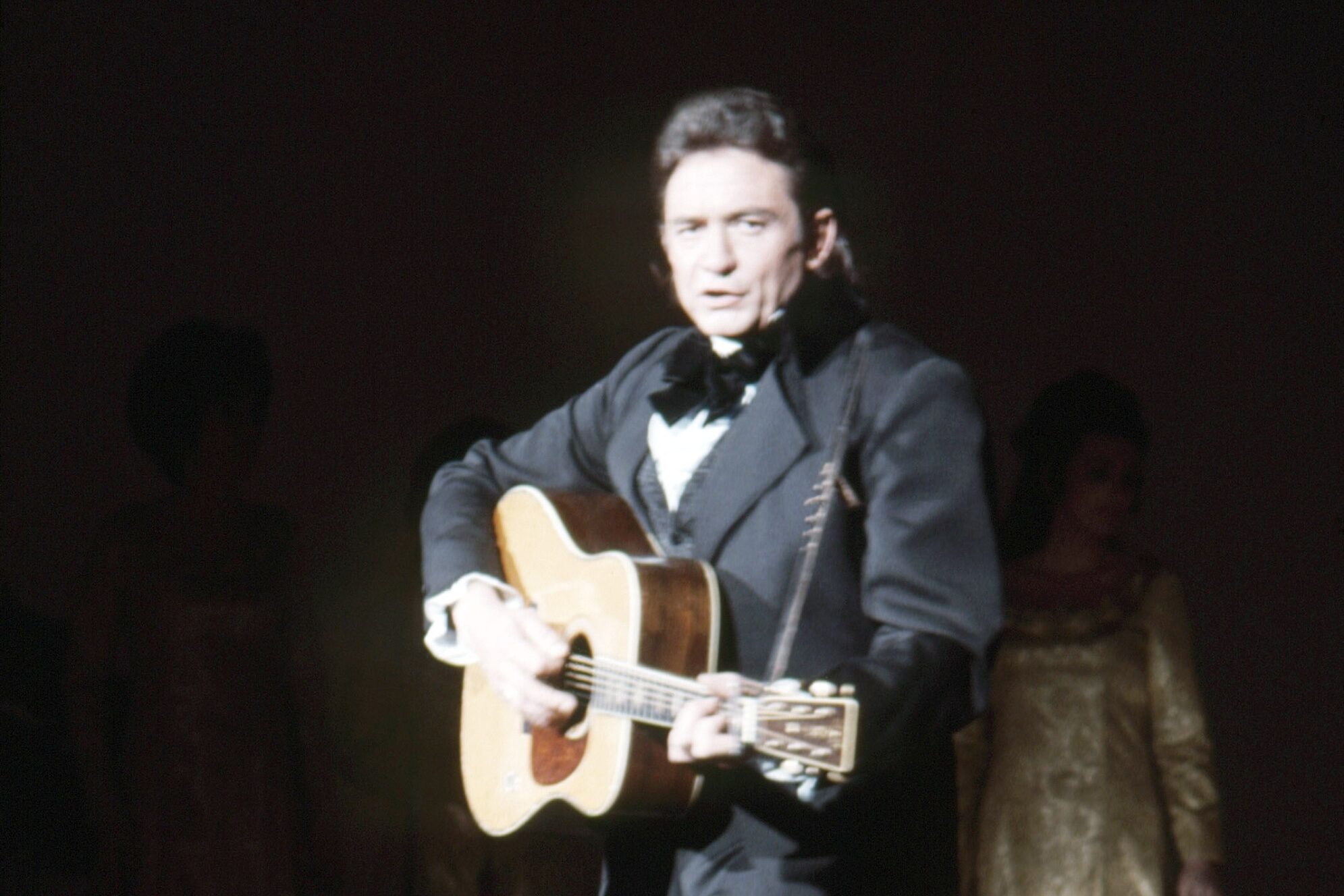
When Johnny Cash covered Nine Inch Nails’ “Hurt” in 2002, it became an instant classic. The song, originally written by Trent Reznor, deals with deep feelings of regret, loss, and self-destruction. Cash’s rendition of the song brought an unparalleled depth of emotion, particularly considering that he was nearing the end of his life. The music video, with its haunting imagery of an older Cash looking back on his life, adds to the poignancy of the song. The way Cash’s voice cracks with raw emotion as he sings “I hurt myself today” makes this cover more than just a song—it’s a final reflection on his own mortality and regrets, making it an incredibly moving experience for listeners.
5. “A Boy Named Sue”
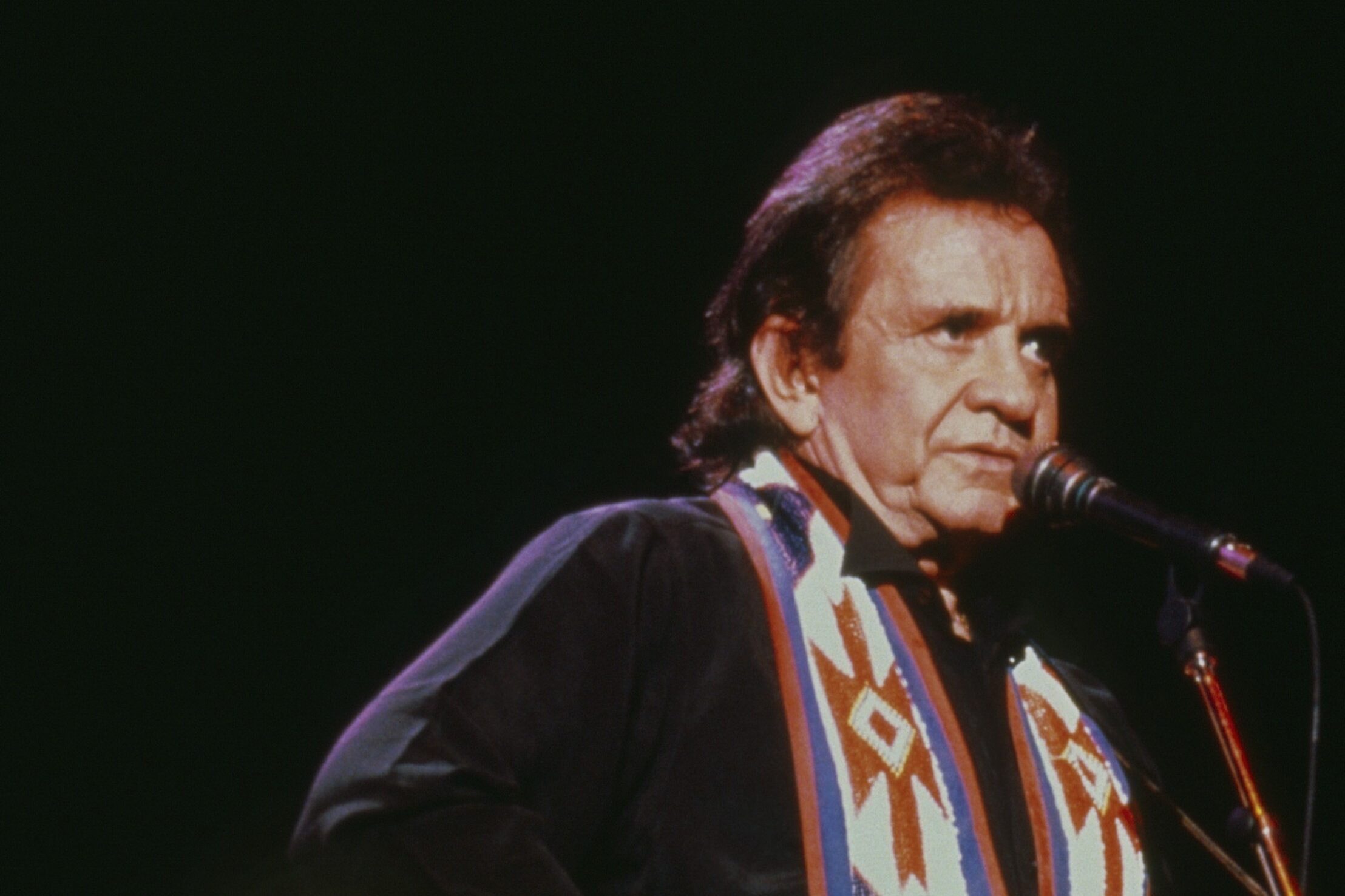
“A Boy Named Sue” is one of Johnny Cash’s most unique songs because of its blend of humor and heartfelt emotion. The song tells the story of a man named Sue, whose father named him that as an act of revenge. The song is a humorous tale about how Sue grows up tough, fighting his way through life to eventually confront his father. Cash’s delivery of the story is both lighthearted and filled with an underlying message about resilience and the complexities of father-son relationships. The way Cash effortlessly blends comedy and drama gives the song a timeless appeal.
6. “Man in Black”
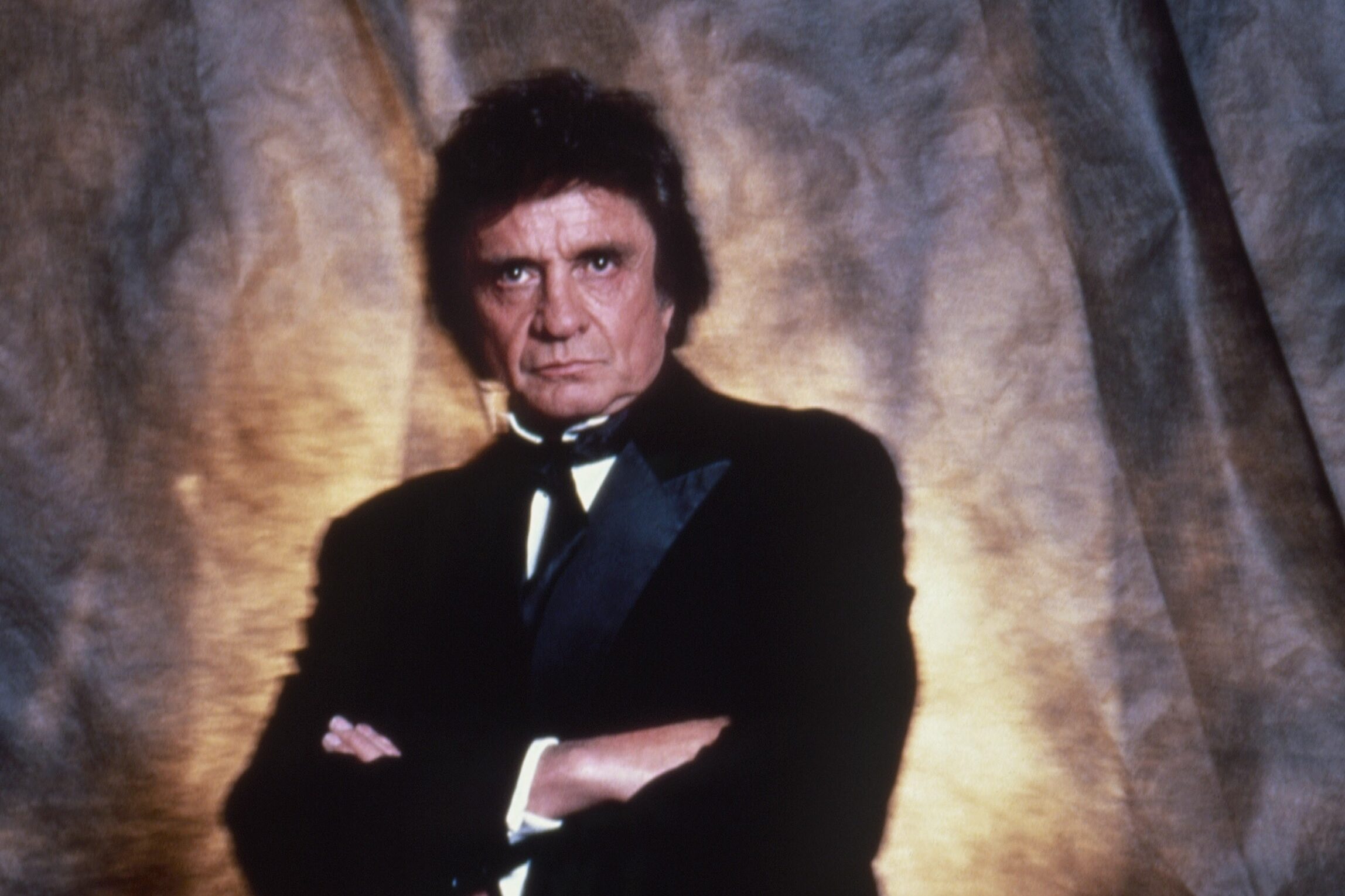
“Man in Black” was more than just a song about Johnny Cash’s distinctive wardrobe—it became a symbol of his commitment to social justice and his desire to speak out for the oppressed. In this song, Cash explains why he wears black: it’s for the poor, the downtrodden, and the forgotten people in society. The lyrics express solidarity with the struggling, those facing hardship, and those who feel marginalized. Cash’s message was clear: he didn’t want to be just another entertainer; he wanted to use his platform to shed light on social issues. This song helped define him as an artist with a strong sense of purpose beyond his music.
7. “Jackson” (with June Carter)
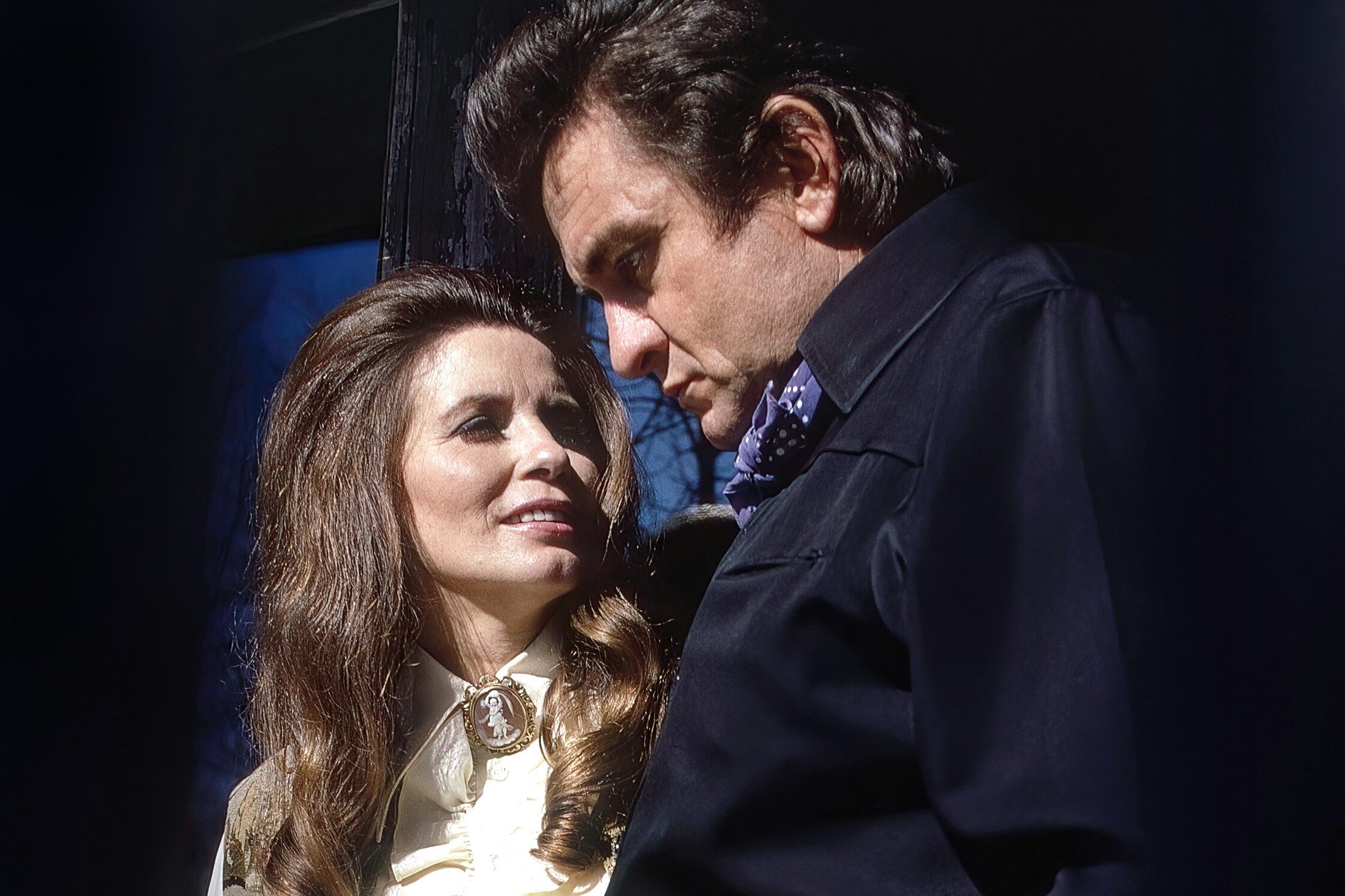
“Jackson” is a lively and playful duet that captures the chemistry between Johnny Cash and June Carter, who would later become his wife. The song tells the story of a couple who are heading to Jackson, Mississippi, to rekindle their romance, with each singer taking turns in the verses. The back-and-forth between Cash and Carter is witty and full of energy, highlighting their undeniable connection. What makes “Jackson” so enjoyable is the perfect balance of humor and passion, with both Cash and Carter delivering their lines with plenty of charm and personality. Their collaboration made this song one of the most beloved duets in country music history.
8. “The Gambler”
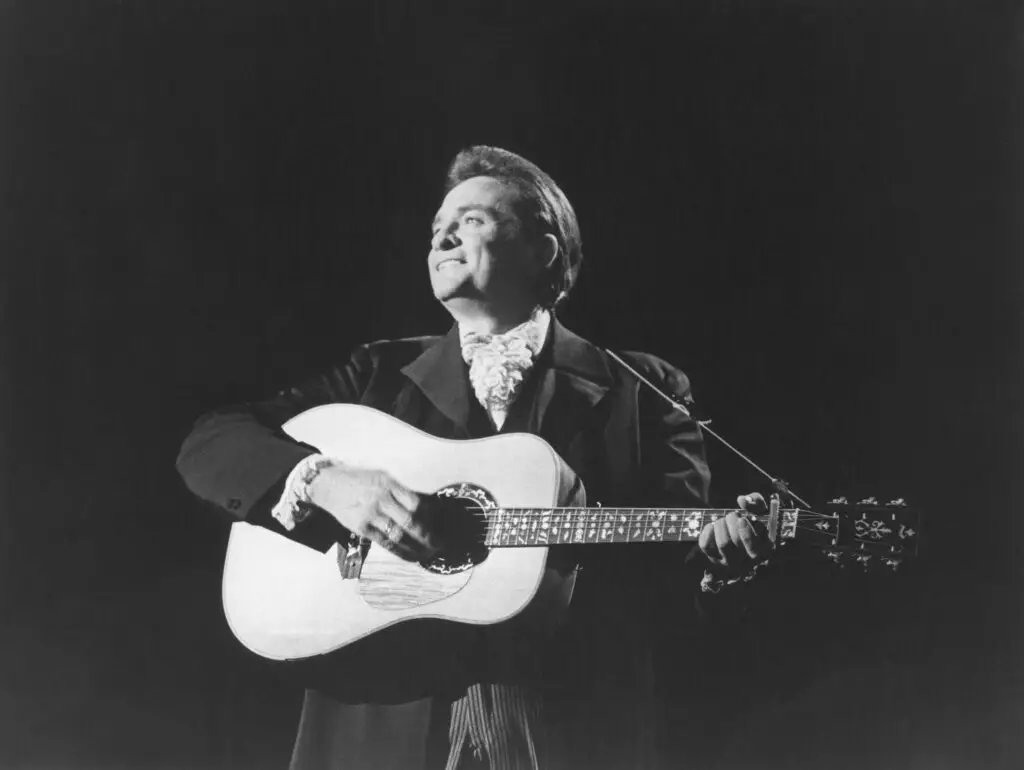
Though “The Gambler” was made famous by Kenny Rogers, Johnny Cash’s version brought a distinct flavor to the song. Originally written by Don Schlitz, the song is about a chance meeting between a traveler and an older gambler, who shares life lessons with him, comparing life to a poker game. Cash’s deeper, more weathered voice adds a layer of grit and experience that makes the song feel like a real-life reflection. His version of “The Gambler” is a reminder of the stakes of life, how decisions are made not just on luck but also on instinct and wisdom.
9. “Cocaine Blues”
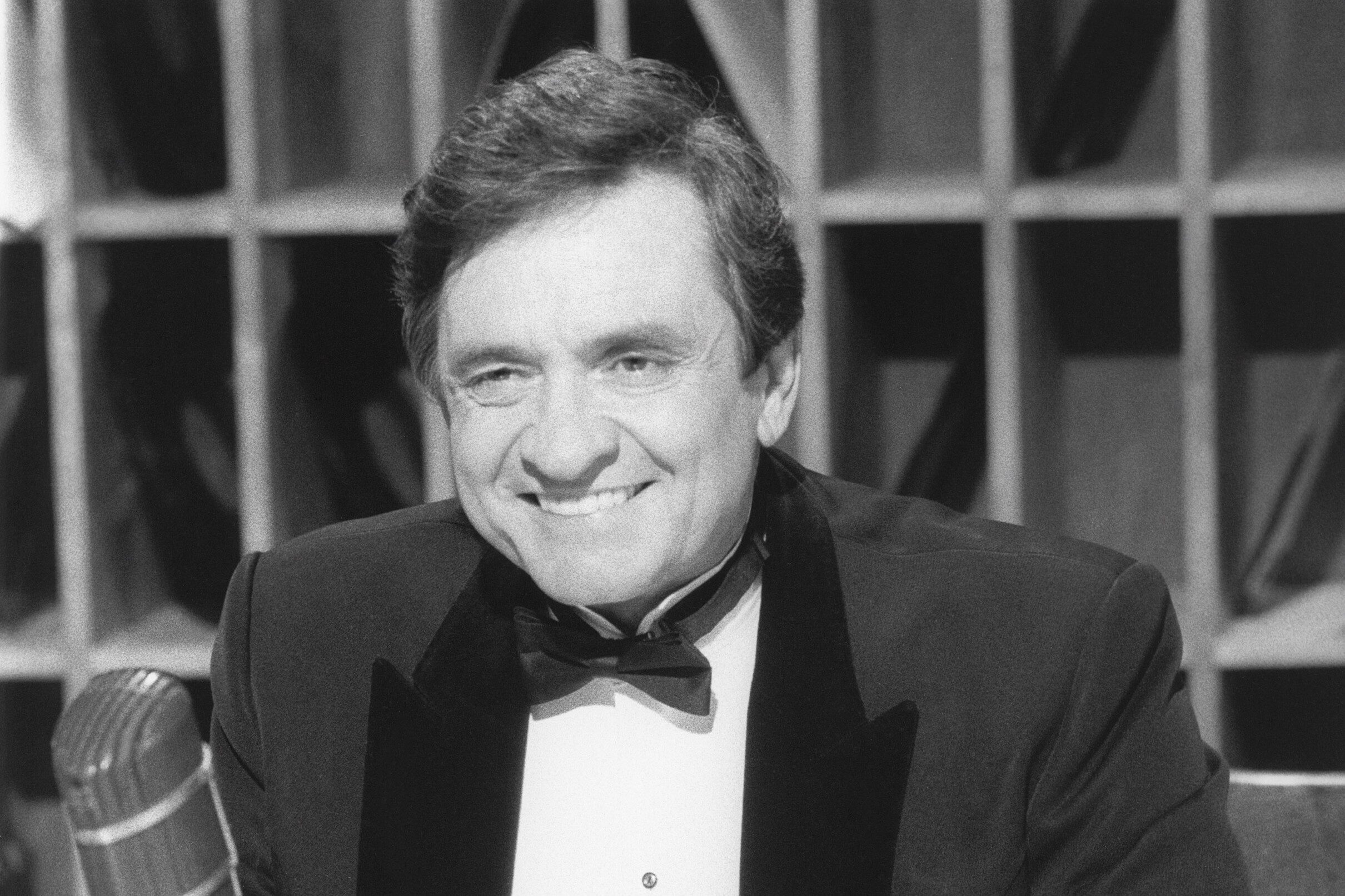
With its fast-paced rhythm and darkly comic lyrics, “Cocaine Blues” is a classic example of Johnny Cash’s ability to tackle tough subjects with energy and intensity. The song tells the story of a man on the run, having committed murder under the influence of drugs. Cash’s delivery is fast and frantic, matching the urgency of the protagonist’s escape. The song is one of his best-known outlaw ballads, blending elements of crime, drug addiction, and the harsh realities of life in prison. “Cocaine Blues” is one of the tracks that helped define Cash as the voice of the underdog and the outcast.
10. “Sunday Morning Coming Down”
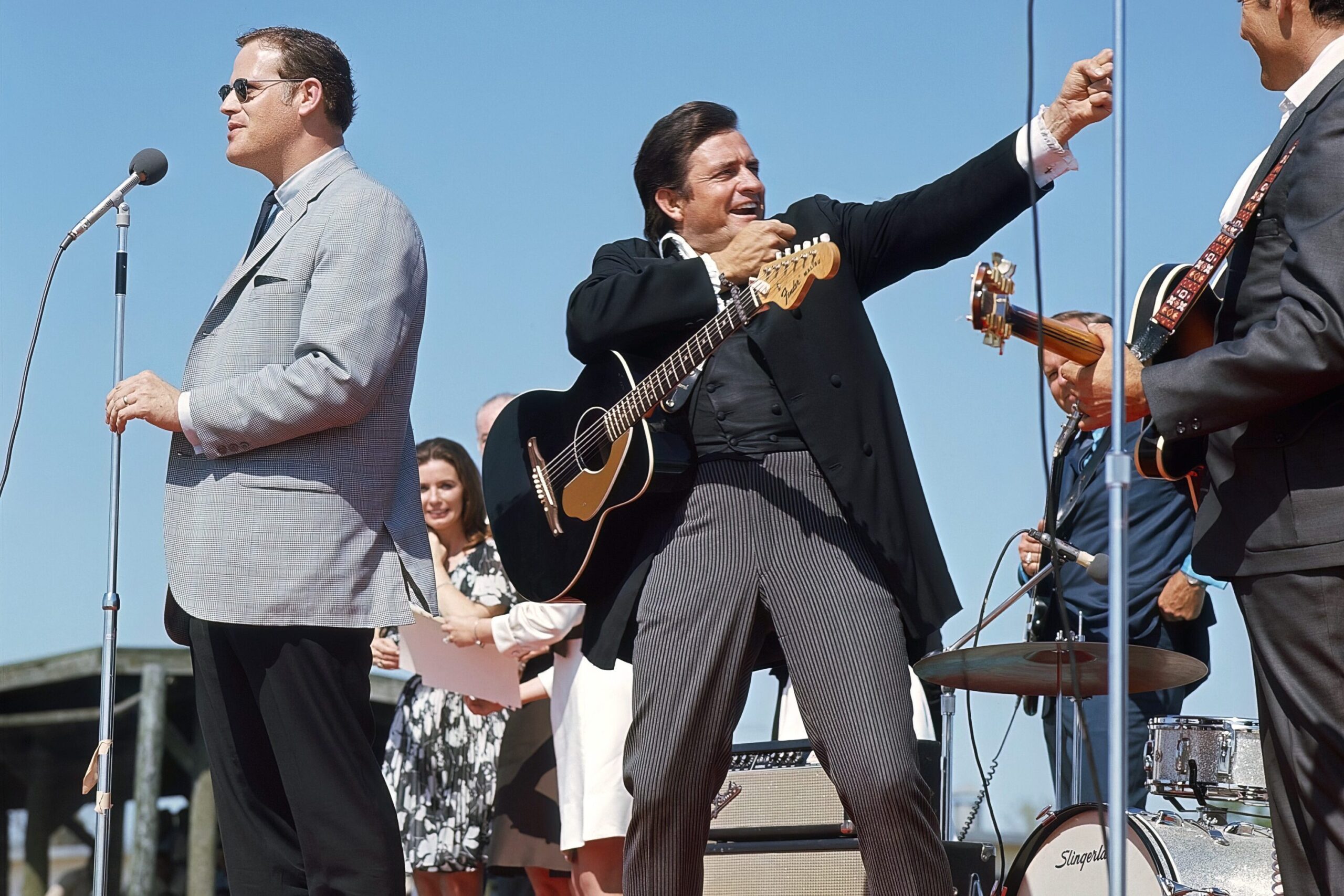
Written by Kris Kristofferson, “Sunday Morning Coming Down” is a slow, reflective song that deals with the aftermath of overindulgence. In the song, the narrator wakes up after a night of drinking and struggles with feelings of loneliness and despair. Johnny Cash’s gravelly voice brings a sense of authenticity to the lyrics, making it feel like a personal reflection on his own struggles. The song’s melancholy mood captures the emotional weight of coming down from the highs of the night before, and Cash’s performance takes it to another level, making it one of his most heartfelt tracks.
11. “Ain’t No Grave”
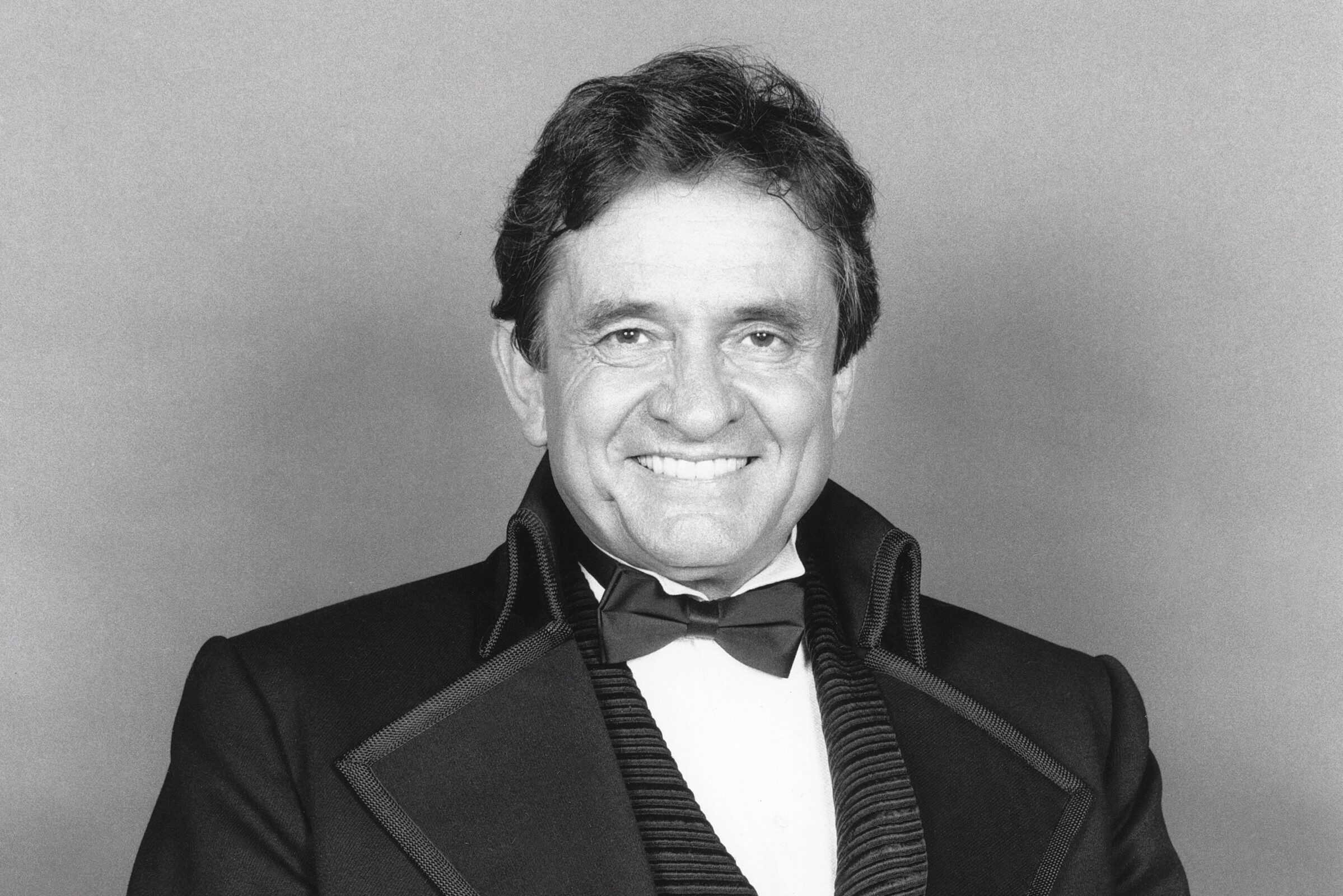
“Ain’t No Grave” is a powerful, gospel-inspired song that finds Johnny Cash reflecting on the afterlife. The lyrics tell of the narrator’s certainty that no grave can hold him down, echoing themes of resurrection and spiritual renewal. The song was recorded in 2003, just a few months after Cash’s death, and it feels like a final statement on his belief in life beyond death. Cash’s voice is strong and full of conviction, and the minimal arrangement gives the song a haunting, timeless quality. It’s a fitting farewell for a man who had always been a voice for the oppressed and the broken.
12. “Delia’s Gone”
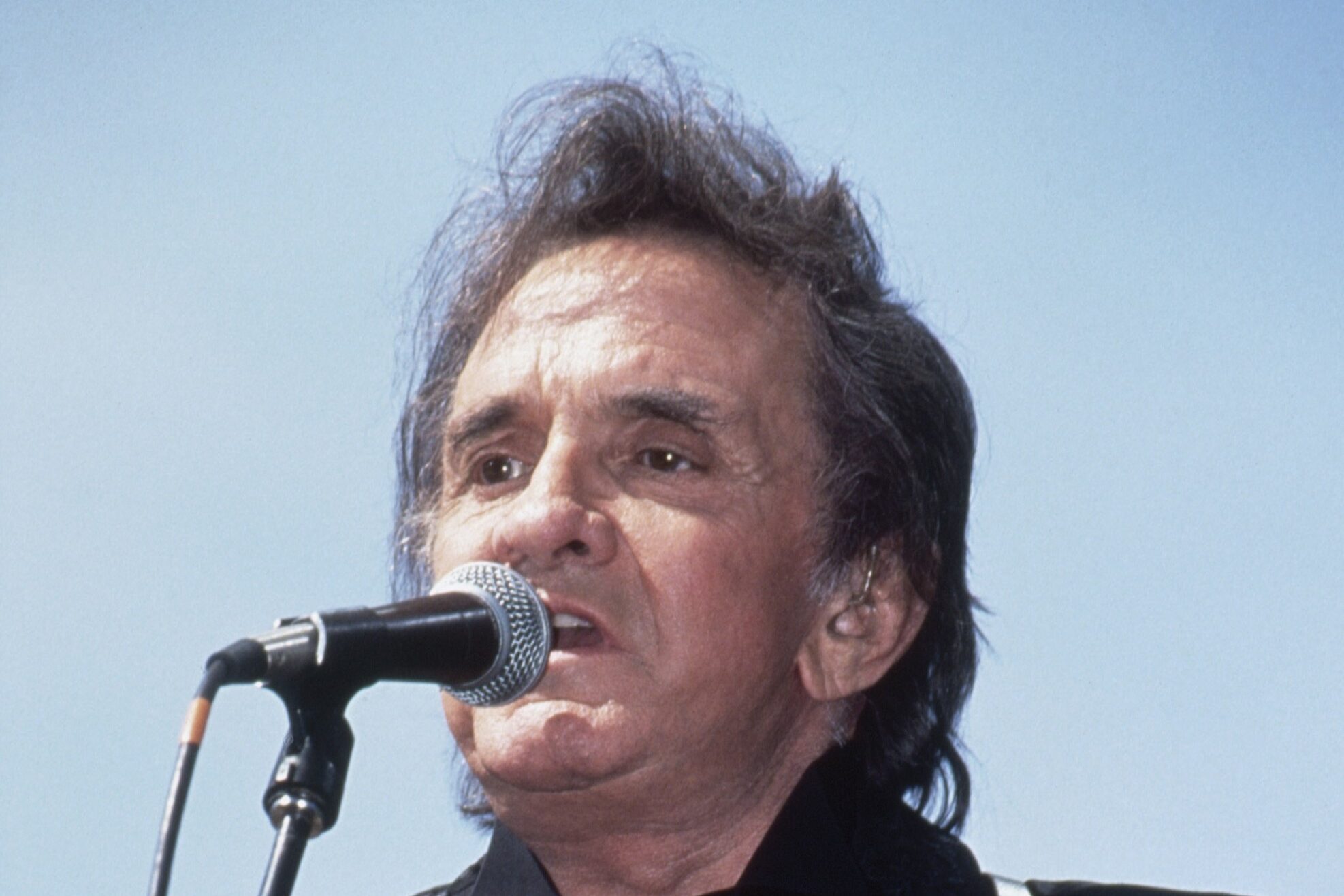
“Delia’s Gone” is a dark, gritty song about a man who has killed a woman named Delia, and now, reflecting on his actions, he feels both regret and remorse. The song’s narrative is chilling, but Cash’s delivery gives it a sense of finality, as if he’s confronting the consequences of his own actions. The repetitive chorus and heavy beat create a hypnotic effect, drawing listeners into the grim tale. Cash’s deep, commanding voice adds layers of intensity to the song, making it one of the more haunting tracks in his catalog.
13. “It Ain’t Me, Babe”
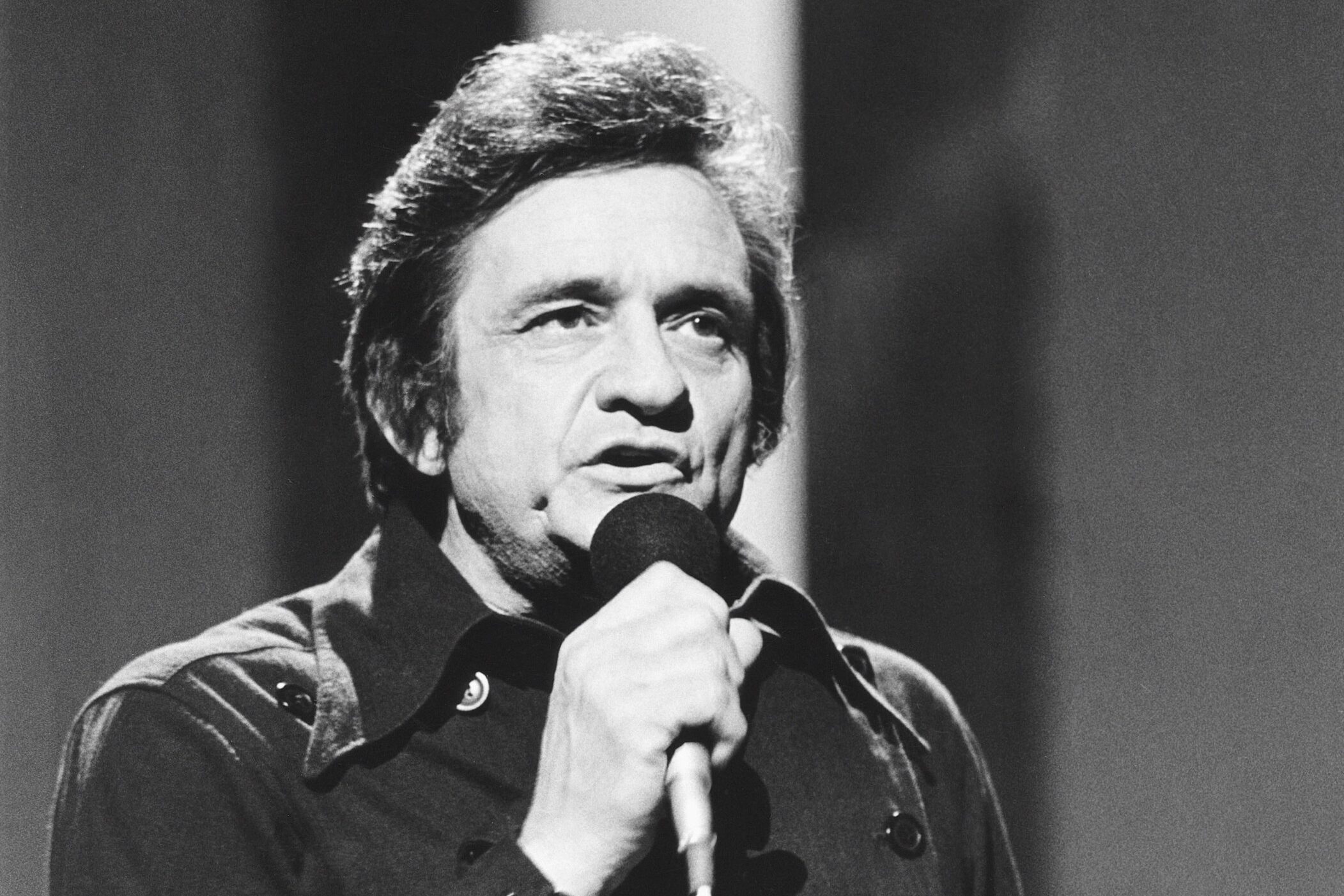
Johnny Cash’s version of Bob Dylan’s “It Ain’t Me, Babe” brings a raw, gritty edge to the song’s message of rejecting romantic love. In the original, Dylan sings about rejecting a woman’s advances, but Cash’s interpretation flips the gender roles, making it a response to a woman who’s looking for love from him. The song is a rejection of false expectations and a declaration of independence. Cash’s vocals give the song a sense of strength and resolve, and his deep, weathered voice gives the words an extra layer of authenticity, making it one of the most memorable covers in his career.
14. “The Long Black Veil”
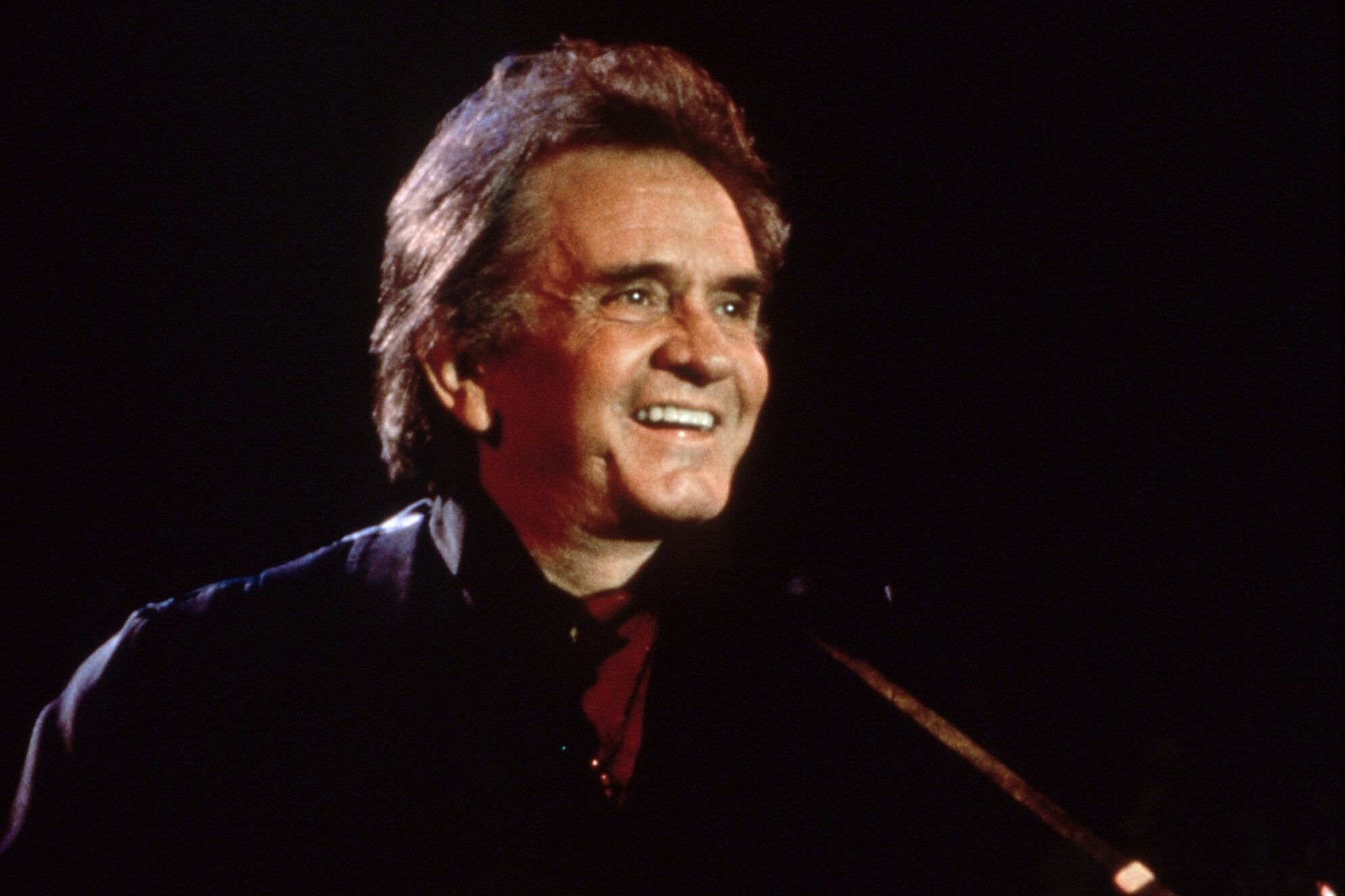
“The Long Black Veil” is a haunting ballad about a man wrongly accused of murder, who refuses to reveal the truth about his innocence in order to protect the identity of his lover. The song’s lyrics are filled with suspense and mystery, and Cash’s deep, mournful voice adds an extra layer of tragedy to the story. The melancholy mood of the song is matched by the somber instrumentation, creating a haunting atmosphere that pulls the listener in. It’s a song that speaks to the themes of love, sacrifice, and the consequences of actions, making it one of Johnny Cash’s most emotionally charged tracks.
15. “I’ll Fly Away”
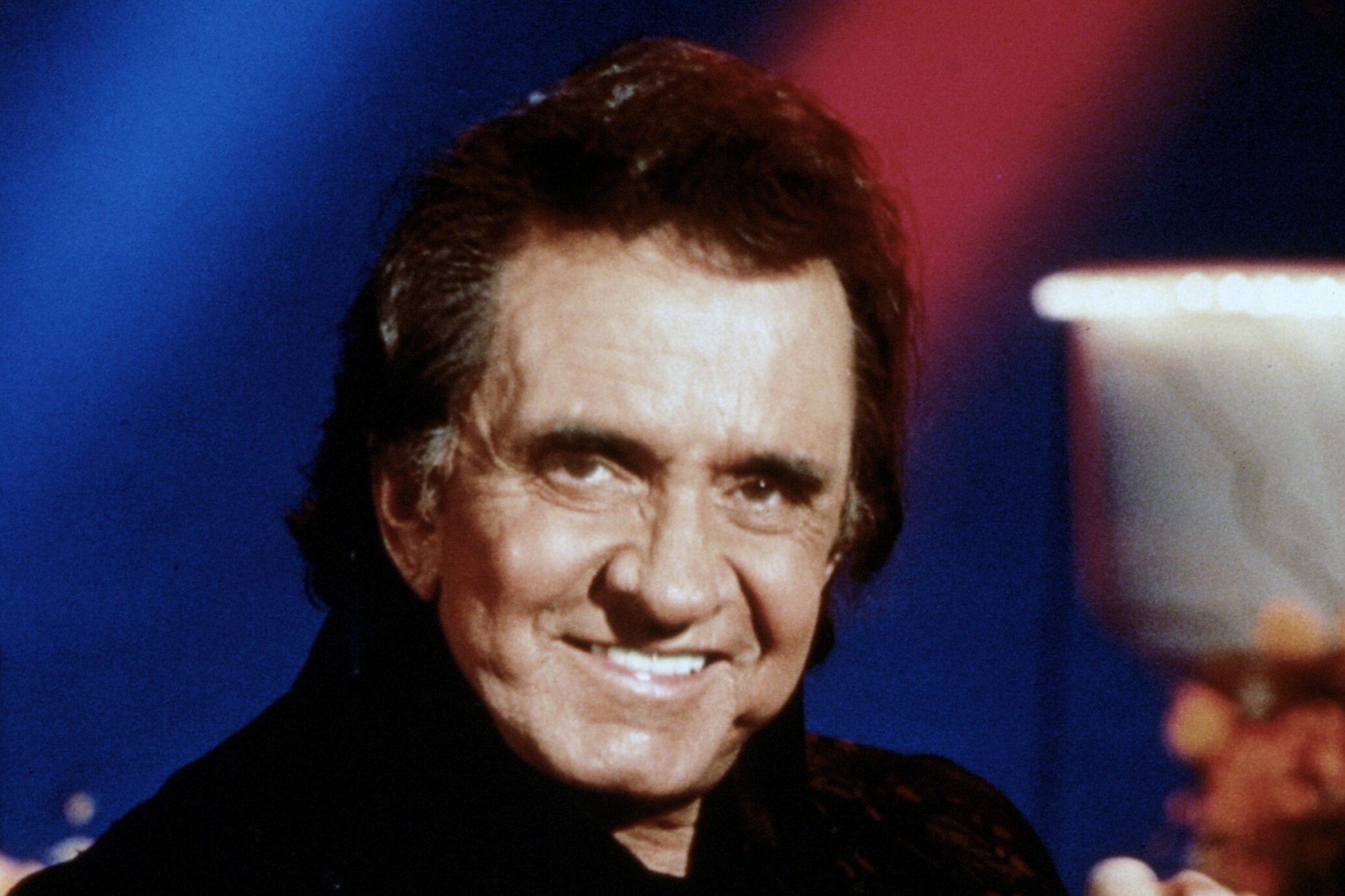
“I’ll Fly Away” is a timeless gospel song that Johnny Cash made his own. The song, with its uplifting lyrics about the promise of heaven, resonated deeply with Cash, especially in his later years. His rendition of the song, full of hope and faith, speaks to his own belief in the afterlife and the peace that awaits. Cash’s delivery is both joyful and reverent, and the accompanying minimal instrumentation gives the song a light, airy feeling. It’s a song that transcends religion, offering a message of hope, freedom, and the eventual release from life’s struggles.


